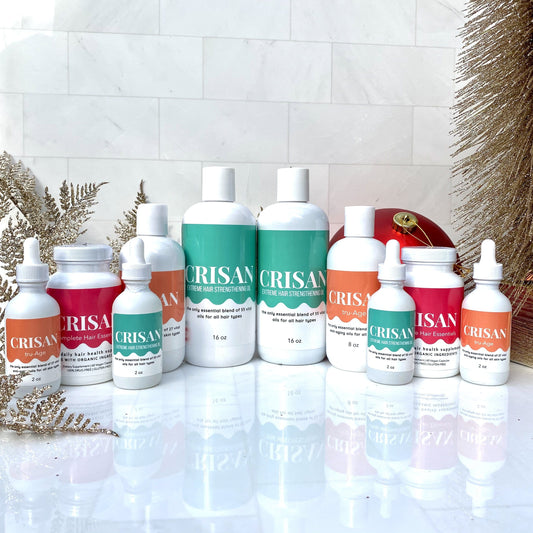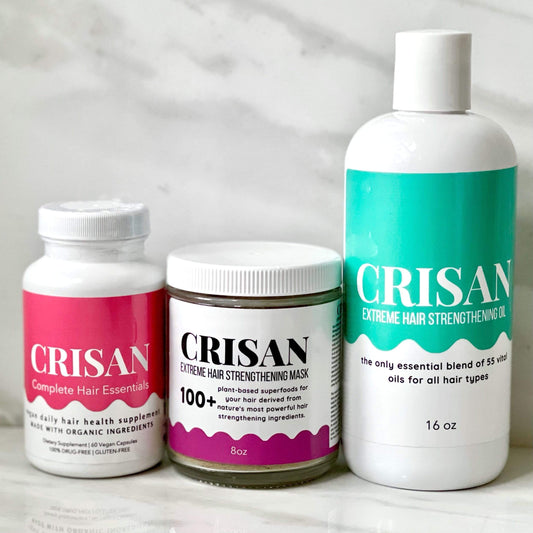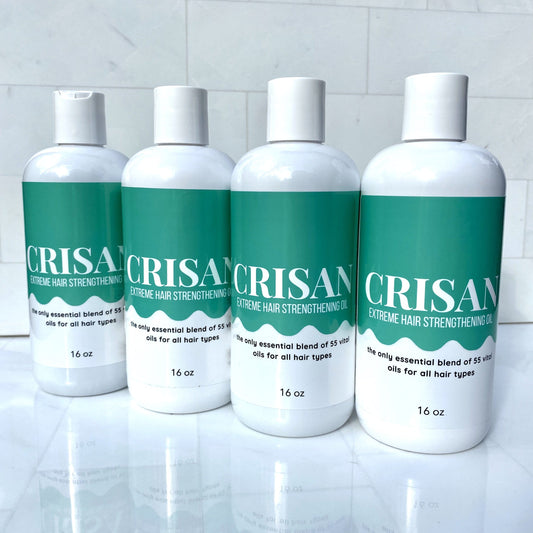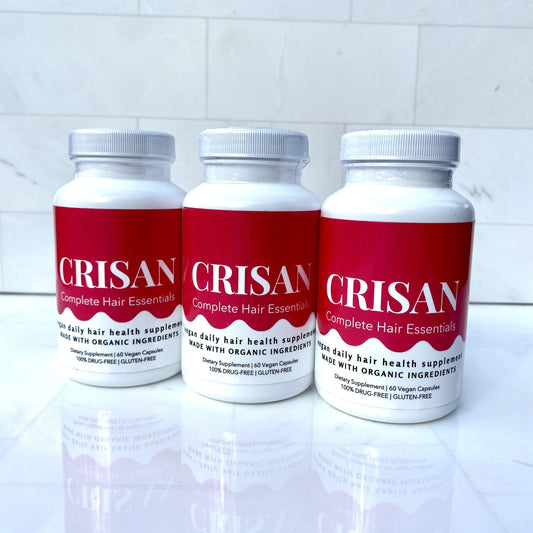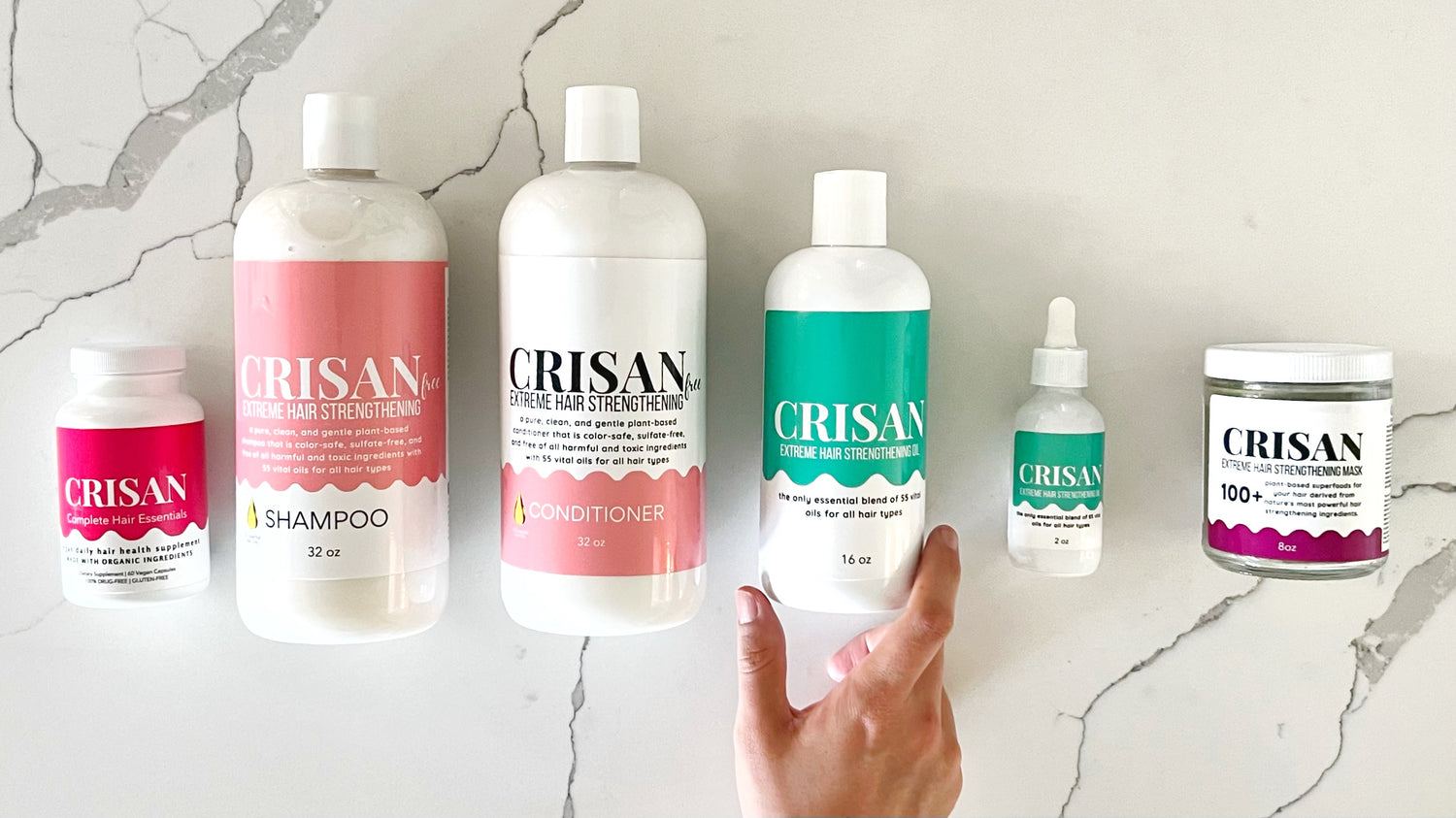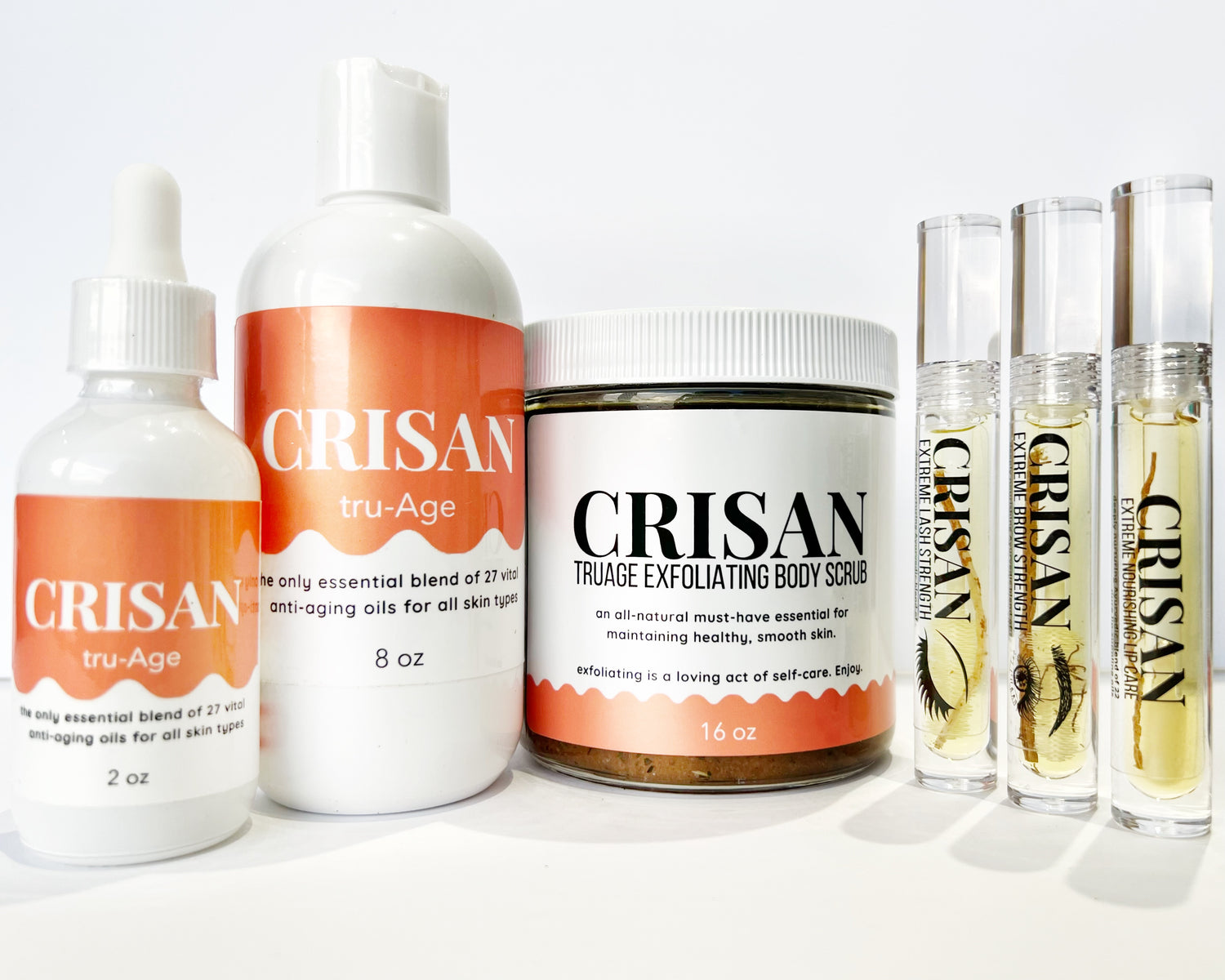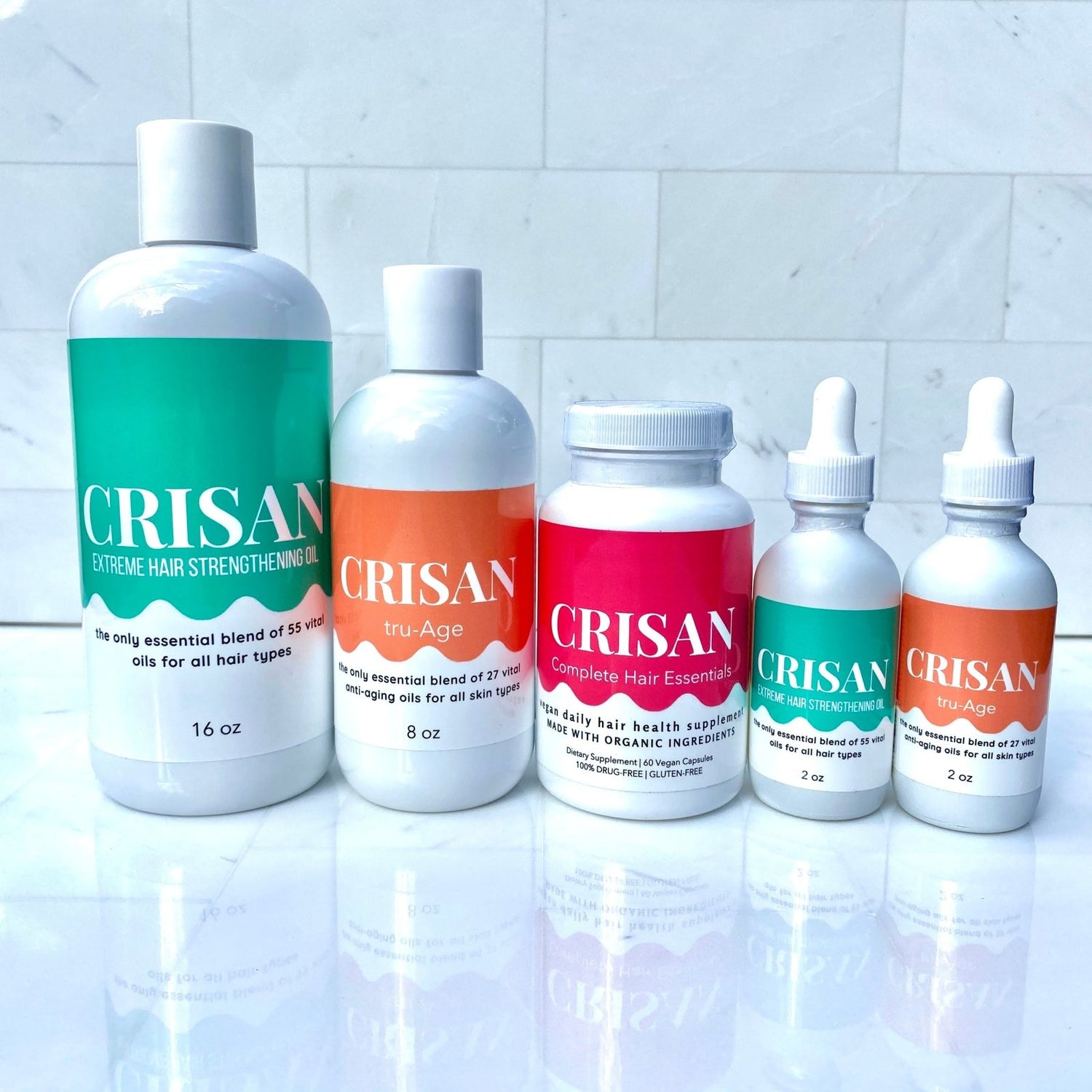
As a new mother nearly ten years ago, I remember combing my hair one day and clumps of hair by the handful filled my bathroom sink. It was shocking and something I was not prepared for. If you're a new mom, you may be wondering what is going on with your hair. You may have noticed more hair in your brush or shower drain than usual and this is no fun at all because you already have so much to deal with. Being a new mom can be very difficult just by itself but when you throw in hair loss, get ready for a whirlwind of emotions. Our hair is a beautiful part of our identity and it is hard to see clumps of it in the sink. Sometimes we wonder, if our youthful time is finished. "Am I really that old now?" is a thought that we can't ignore. How grateful I was to learn that the hair loss I experienced could be remedied. It is called "Postpartum Hair Loss", and is usually temporary. Read on to learn more.

Postpartum hair loss is very common and happens to many women a few months after giving birth. It can be traumatic - especially when coupled with difficulty sleeping, learning how to breastfeed, healing after delivery, running a business, taking care of others, and so much more that we have to deal with as new parents. Please don't be overwhelmed though because there are treatments available that can help support your hair health and they are so easy to incorporate into your diet and regimen that you won't even have to rearrange your schedule to make room for them. In this blog post, we will discuss the causes of postpartum hair loss and some treatment options that are available.

So, what causes postpartum hair loss? The biggest reason is hormones. During pregnancy, your estrogen levels increase dramatically. After you give birth, your estrogen levels drop back down to their normal levels. This change in hormone levels can cause telogen effluvium, which is a type of temporary hair loss.
In addition to changes in estrogen levels, there are a few more conditions that can contribute to postpartum hair loss. Stress is one of them. When you're pregnant and after you give birth, your cortisol levels are higher than normal. Cortisol is a stress hormone that can cause the hairs on your head to go into the resting phase (telogen) prematurely. Once these hairs fall out, they are not replaced as quickly as they normally would be, which can lead to hair thinning and loss.
Next after and often overlooked as a contributor to hair loss is the mother's diet. It is especially important after birthing a child, for the mother to have a rich and balanced diet. A lack of essential trace minerals, vitamins, antioxidants, phytonutrients, and adaptogens can only exacerbate telogen effluvium and cause it to last longer than it would otherwise. Insufficient protein or iron in your diet can also lead to telogen effluvium. It is of utmost importance for the health of the mother and child whom she birthed, for members of the family or friends, to support the mother in any way they can. Make her nutritious meals three times a day. Blend the Selva Family Green Juice every morning. Offer water whenever possible. Doing this not only ensures the health of the mother but also satisfies their need for affection and love after enduring such a difficult and life changing event such as childbirth.

In my own experience and after having birthed five beautiful children, I can bear witness to the fact that it makes a WORLD of difference when the entire family steps in to support a new mother in any way they can. My first child Sarah's birth was my most difficult birth by far. Well, actually - breastfeeding her was the most difficult thing I've ever experienced in my life - even worse than childbirth. Bleeding, cracked nipples, mastitis, no sleep, and a latch that felt as though I was nursing a baby piranha, made me second guess my decision to become a mother. However, my dear husband Jett knew just what to do. He brought me fresh fruits and vegetables and a full glass of water every time I needed to nurse the baby to make sure that I was replenishing my vitamins and minerals. His mother cooked wholesome soups, curries, and dishes every single day to support my milk supply and ensure that the baby and I were healthy. The love I felt towards them for selflessly caring for me and doing more than what anyone else would have done allowed me to heal in happiness and gratitude and since then, I have been compelled by that experience to do anything I can for them to show them my support and love because of what they did (and continue to do) for me.

So what can we do to help support our hair after birthing a child? Below are some tips:
- Telogen effluvium: This can be temporary and usually occurs three to six months after delivery. Eat well and take supplements that support postpartum recovery. Nourish your hydrolipidic film, scalp, and follicles topically by applying nutrient-rich hair masks such as CRISAN's Extreme Hair Strengthening Oil and the 100+ Mask, and by using Ayurvedic nutrient-dense shampoos and conditioners such as the CRISAN Golden Label Extreme Hair Strengthening Duo. The Extreme Hair Strengthening Oil is applied to your scalp twice a week, prior to shampooing and conditioning and it helps to stimulate hair growth. For women with type 4a-4c hair, the oil can be used as a leave in for as long as desired to prevent breakage and encourage healthy new growth.
- Estrogen: You can eat foods that contain estrogen to help with postpartum hair loss. Natural foods that contain estrogen include soybeans, tofu, tempeh, flaxseeds, and legumes. Try to sleep when baby sleeps so that your body is able to regulate its own estrogen more quickly.
- Cortisol: This is a stress hormone that can contribute to hair loss (watch this video to learn more about how to control stress). To help reduce cortisol levels, try to get plenty of rest, exercise regularly, and eat a healthy diet. Take your CRISAN Vitamins and Supplements as these contain natural stress relievers (the most common one being ashwagandha which is an amazing drug-free stress reliever). Also, when you're feeling stressed, play relaxing instrumental music to calm you down. David Lanz was one of my favorites. I also enjoy listening to Christian Music or any other music that is meant to uplift and inspire. Guard your home and your environment well so that it is a relaxing and healing place to be. Avoid negativity as if it were a plague. If you do not invite it in your home, it cannot be in your home.
- General Hair Wellness: Above all, cherish your body. You just brought a unique and beautiful human being into the world. If you do not have support at home to aid you during this time, you can still do these things on your own. If you are lonely and truly need a sister or friend to help you, contact your local Relief Society. The Relief Society is one of the oldest women's organizations in the world and has close to 6 million members around the world. It is their job to provide comfort and support to women (sisters as they call them) in need and more than just a job, it is their true joy. They are local women in your neighborhood who will visit you and check in with you to make sure you are doing well and have everything you need. With a compassionate ear, they will listen to your story and be a shoulder to cry on if nothing else. Sometimes they even bring cookies....just saying. To find a Relief Society near you, click this link and search your address to find the closest meetinghouse to you. Next, Click on Residential Ward for this Location. You will see a number to call the Bishop of your local meetinghouse. Call him (or text him) and tell him that you are looking for a member of the Relief Society because you need postpartum support and/or friendship from a woman who can relate to you. He will then set everything up so that you can be visited as soon as possible.

Struggling with postpartum hair loss is a real challenge, but you are not alone. I hope these tips and stories have helped you in finding the best treatment for your situation. Let me know if there is anything else I can provide for you. Happy healing!


